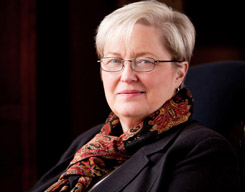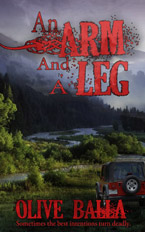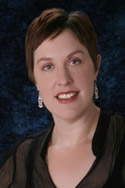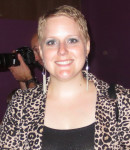by Olive Balla
 Just to dispel any misunderstanding up front, I never actually met Louis L’Amour. He never reached out his hand to pluck my struggling body from a rain swollen river. He never yanked me out of the path of a careering city bus. But what he did do was just as vital to my survival—he wrote fiction.
Just to dispel any misunderstanding up front, I never actually met Louis L’Amour. He never reached out his hand to pluck my struggling body from a rain swollen river. He never yanked me out of the path of a careering city bus. But what he did do was just as vital to my survival—he wrote fiction.
When I was twenty-one, married with three children and trying to survive a spiritual, emotional, mental, and financial train wreck, I discovered Louis L’Amour’s Sitka. That phenomenal piece of literature bore me on a magic carpet of woven words, away from the turmoil that was my life, and into flights of escape. The harsh expanse of Alaska, the tough men and often tougher women, the struggle to not only survive, but thrive against overwhelming odds, those all spoke to my depressed, lonely, fearful spirit.
After that, I haunted the local public library in search of more L’Amour titles. I grew to crave the sensation of being ferried into the past while watching from the safe distance of the present. I thrilled in the knowledge that everything would turn out okay for the men and women with whom I found myself identifying. I read everything Louis L’Amour wrote, and his words comforted me. They gave me hope.
Over the next few years I branched out into other areas of fiction. I reveled in the excitement of spy novels written by Helen MacInnes, feasted on the haunted offerings of Stephen King, and devoured the cerebral musings of Isaac Asimov.
My world changed and expanded. Eventually, the idea that I myself could change took root. At the age of twenty-nine I went to college, where I learned how to teach others to read and write.
Thirty years later, I still look forward to those quiet times when I can burrow into my pile of pillows, a cup of hot tea at my elbow and a compelling story in my hands. I still thrill at being escorted into other realms, other dimensions, other realities.
Some people believe that every person has a unique niche in this world, a slot molded in her image and into which she alone will fit. I don’t know if that’s so. But I do know that writers hold a special place in the human experience, some even to the point of sparking world change.
So, thanks to those of you who answer the call to write in whatever genre beckons. Thanks for meeting deadlines, for struggling with agents, for doing hours of research, for rewriting innumerable times and not giving up. Thanks for following the tugging of your muse. And thank you Louis L’Amour, for saving my life.
 Olive Balla, author of suspense novel An Arm and a Leg, is mother of 3, grandmother to 13, great-grandmother of 4, a retired educator, and part-time professional musician. Having been everything from secretary at a used car dealership, a university student, and a high school Spanish teacher, Balla states her characters are, in part, amalgamations of people she’s met. Living with her husband Victor in the Albuquerque area, she spends her spare time in a small woodworking shop designing and building everything from breadboxes and wine racks, to a porch bench. Visit her website at omballa.com.
Olive Balla, author of suspense novel An Arm and a Leg, is mother of 3, grandmother to 13, great-grandmother of 4, a retired educator, and part-time professional musician. Having been everything from secretary at a used car dealership, a university student, and a high school Spanish teacher, Balla states her characters are, in part, amalgamations of people she’s met. Living with her husband Victor in the Albuquerque area, she spends her spare time in a small woodworking shop designing and building everything from breadboxes and wine racks, to a porch bench. Visit her website at omballa.com.
This article was originally published in the October 2011 issue of SouthWest Sage and is reprinted here by permission of the author.


 Though it has virtually nothing to do with this article, Bentley Clark wonders if zombies can get rabies. Opine and give her a piece of your mind in the comments below.
Though it has virtually nothing to do with this article, Bentley Clark wonders if zombies can get rabies. Opine and give her a piece of your mind in the comments below.
 A.R. Aeby received a Bachelor of Arts in history almost solely from the love of stories, even nonfiction ones. She is the author of the book review blog
A.R. Aeby received a Bachelor of Arts in history almost solely from the love of stories, even nonfiction ones. She is the author of the book review blog 